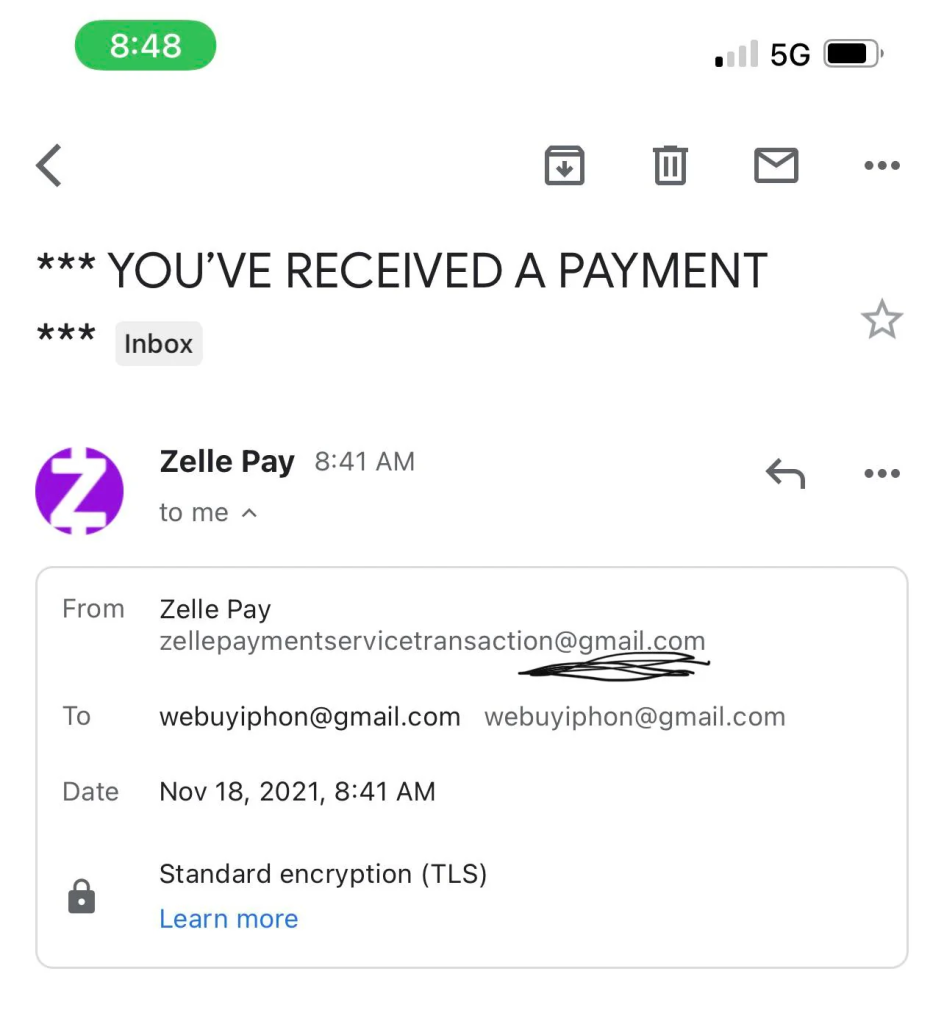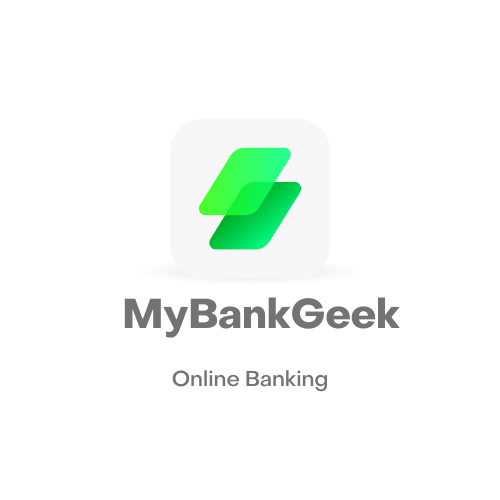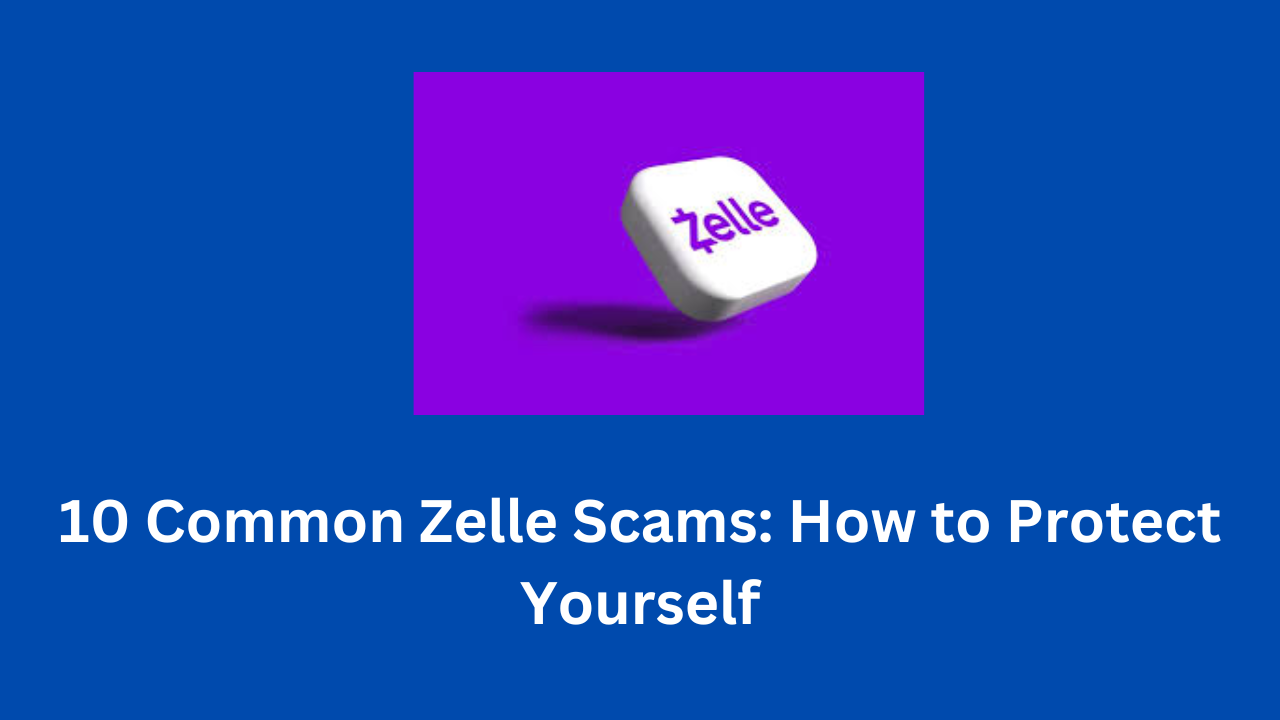Zelle is a popular peer-to-peer payment service that allows users to send and receive money quickly and easily. However, Zelle scams are on the rise, and it’s important to be aware of them so you can protect yourself.
Today on MyBankGeek, we are going to show you some of the common Scams on Zelle that you should be aware and how you can protect yourself.
Can You Get Scammed on Zelle?
Yes, you can get scammed on Zelle.
How Zelle Scams Work
These scams typically involve the scammer sending you a text message or email that appears to be from a legitimate company or individual. The message will often say that you have won a prize, or that you need to pay a bill or fee. The scammer will then ask you to provide your Zelle information, such as your phone number or email address.
Once you have provided your Zelle information, the scammer will be able to send money to your account. However, the money will not be from the legitimate company or individual. Instead, it will be from the scammer’s account.
10 Common Zelle Scams
Here are 10 Zelle scams to watch out for:
1. Fake payment requests
In this scam, the scammer will send you a text message or email that appears to be from a legitimate source, such as a friend, family member, or business. The message will ask you to send money via Zelle.
The scammer may claim that they need the money for an emergency, such as a car repair or a medical bill. Or, they may say that they are sending you money and ask you to send it back.
2. Phishing attacks
In a phishing attack, the scammer will send you an email or text message that looks like it is from a legitimate source, such as your bank or Zelle. The message will contain a link that, when clicked, will take you to a fake website that looks like the real Zelle website.
Once you are on the fake website, the scammer will try to trick you into entering your personal information, such as your username, password, and bank account number.
3. Impersonation scams
In this scam, the scammer will call you and pretend to be from your bank or Zelle. They may say that there is a problem with your account and that they need you to verify your information.
The scammer may also ask you to provide them with your Zelle login information so that they can “fix” the problem.
4. Fake job postings
In this scam, the scammer will post a fake job listing that promises high pay for easy work. The listing will often ask you to send money via Zelle as part of the application process.
Once you send the money, the scammer will disappear and you will never hear from them again.
5. Fake invoice scams
In this scam, the scammer will send you an invoice for goods or services that you never ordered. The invoice will often ask you to pay via Zelle.
6. Fake lottery winnings scams
In this scam, the scammer will contact you and tell you that you have won a lottery that you never entered. They will then ask you to send money via Zelle to cover taxes or other fees before you can claim your winnings.
7. Fake Zelle apps
There are a number of fake Zelle apps available on the app store. These apps look like the real Zelle app, but they are actually scams. If you download one of these apps, the scammer will be able to access your personal information and steal your money.
8. Shipping scams
In this scam, the scammer will sell you an item online and then ask you to pay for shipping via Zelle. However, the item will never arrive and you will not be able to get your money back.
9. Tech support scams
In this scam, the scammer will call you and claim that there is a problem with your computer. They will then offer to help you fix the problem for a fee.
The scammer will often ask you to pay via Zelle. However, once you pay them, they will disappear and you will not be able to get your money back.
10. Romance scams
In this scam, the scammer will create a fake online profile and start a romantic relationship with you. They will then ask you to send them money via Zelle for various reasons, such as to help them pay for a medical emergency or to invest in a business opportunity.
What Does a Fake Zelle Email Look Like?
Fake Zelle emails are designed to look like they’re from Zelle, but they’re actually from scammers. These emails often contain the Zelle logo and branding, and they may even be addressed to you by name.

Zelle Scam Facebook Marketplace

Facebook Marketplace is a popular online marketplace where people can buy and sell items. However, scammers have been using Facebook Marketplace to target unsuspecting buyers and sellers.
One of the most common scams on Facebook Marketplace involves Zelle.
Here is how a Zelle scam on Facebook Marketplace typically works:
- A scammer will contact a seller who has listed an item for sale on Facebook Marketplace.
- The scammer will express interest in buying the item and will offer to pay via Zelle.
- The scammer will send the seller a fake email or text message that appears to be from Zelle. The email or text message will say that the buyer has paid for the item, but that the seller needs to upgrade their Zelle account in order to receive the payment.
- The seller will be asked to pay a fee to upgrade their Zelle account. However, the fee is actually a scam, and the seller will never receive the money from the buyer.
How to Protect Yourself from Zelle Scams
Here are some tips to help you protect yourself from Zelle scams:
- Only send money to people you know and trust. This is the most important tip to remember. If you don’t know the person you’re sending money to, don’t do it.
- Be suspicious of unsolicited requests for money. If you receive a text message or email from someone you don’t know asking for money, it’s probably a scam.
- Never click on links or open attachments in emails or text messages from people you don’t know. These links could lead to fake websites that are designed to steal your personal information.
- Check your bank statements regularly for unauthorized transactions. If you see a transaction that you didn’t make, report it to your bank immediately.
- Use a strong, unique password for your Zelle account. This will help protect your account from unauthorized access.
What to Do if You Get Scammed on Zelle
If you get scammed on Zelle, here are the steps you should take:
- Contact your bank or credit union immediately. They will be able to investigate the unauthorized transaction and, if possible, help you get your money back.
- File a fraud claim with Zelle. You can do this online or by calling 1-844-428-8542.
- Block the scammer’s contact information. This includes their phone number, email address, and Zelle ID.
- Change your passwords. This includes your bank account password, your Zelle password, and any other passwords that the scammer may have access to.
READ MORE: Top 13 Cash App Scams
Conclusion
Zelle is a convenient way to send and receive money, but it’s important to be aware of the risks of scams. By following the tips in this blog post, you can help protect yourself from becoming a victim.
If you have any questions about Zelle scams, please contact Zelle customer service.
FAQS
Will Zelle cover me if I get scammed?
No, Zelle does not offer purchase protection. This means that if you send money to someone who turns out to be a scammer, you are unlikely to get your money back.
Is there a scam going on with Zelle?
Yes, there are a number of Zelle scams that are currently being circulated. Some of the most common scams include:
1. Money mule scams: In this scam, the scammer will contact you and ask you to help them transfer money. They may say that they are in a bind and need your help to send money to a friend or family member. Once you send the money, the scammer will keep it and disappear.
2. Zelle transfers “to yourself”: In this scam, the scammer will send you a text message or email that appears to be from Zelle. The message will say that you have received a payment, and it will provide a link to click to accept the payment. If you click on the link, it will take you to a fake Zelle website that looks like the real thing. Once you enter your login information, the scammer will steal your account information.
3. Account upgrade scam: In this scam, the scammer will contact you and say that they are from Zelle. They will say that you need to upgrade your account in order to send or receive more money. They will then ask you for your personal information, such as your Social Security number or credit card number. Once they have your information, they will use it to steal your identity or commit fraud.
4. Bank impersonators: In this scam, the scammer will contact you and pretend to be from your bank. They will say that there is a problem with your account and that you need to provide them with your personal information in order to fix it. Once they have your information, they will use it to steal your money or commit fraud.
5. Account takeovers: In this scam, the scammer will gain access to your bank account and then use Zelle to send money to themselves or others. They may do this by phishing for your login information or by installing malware on your computer.
John Gurche was born in Los Angeles, California, and raised in Utah, England, New York, and Los Angeles again. He attended the University of California, Santa Barbara, earning his BA in 1969, and his Ph.D. in 1975. He is the author of 10 books, including: A History of Western Philosophy (with Stephen Toulmin), The Moral Landscape: How Science Can Determine Human Values, and The Liberal Imagination.

